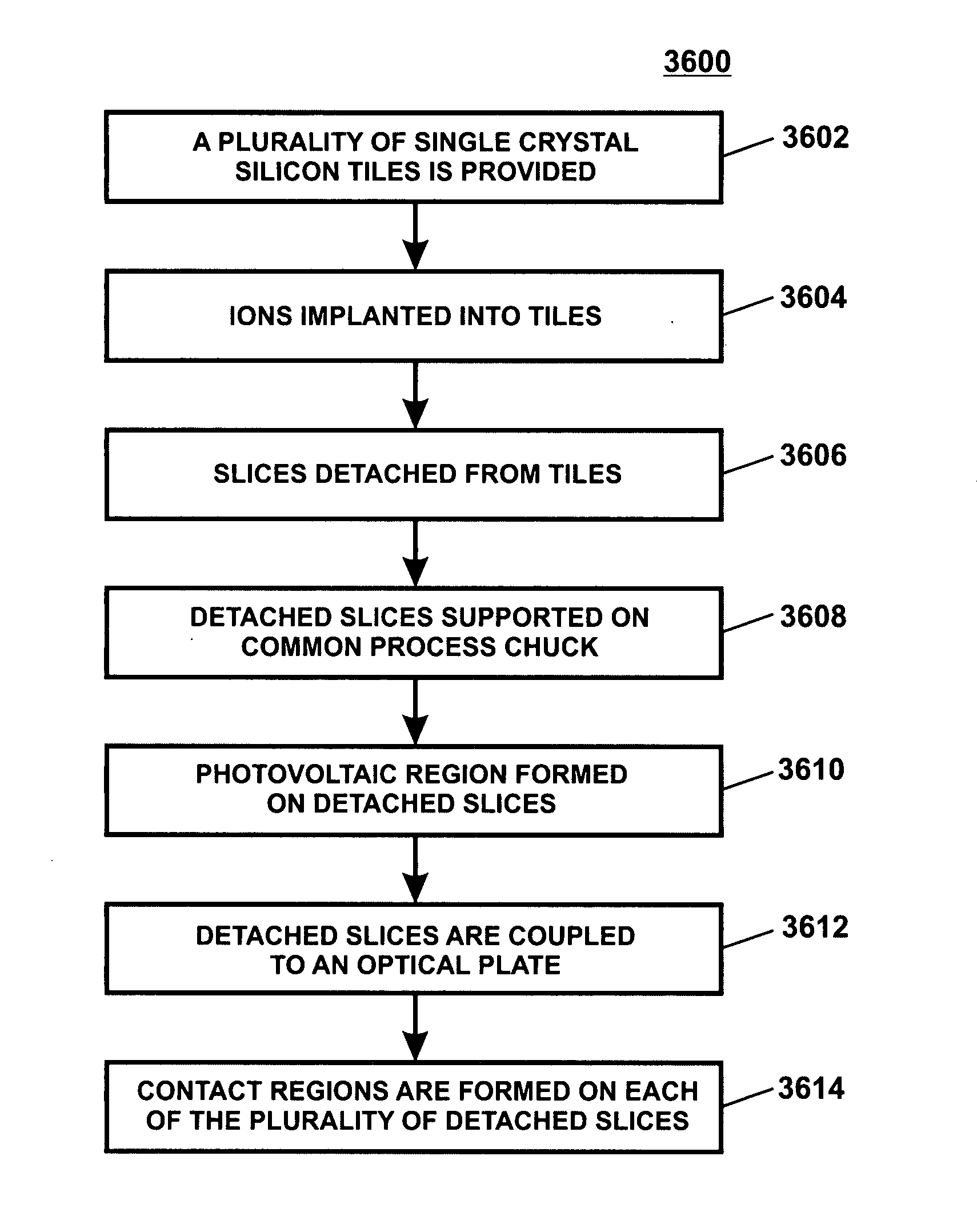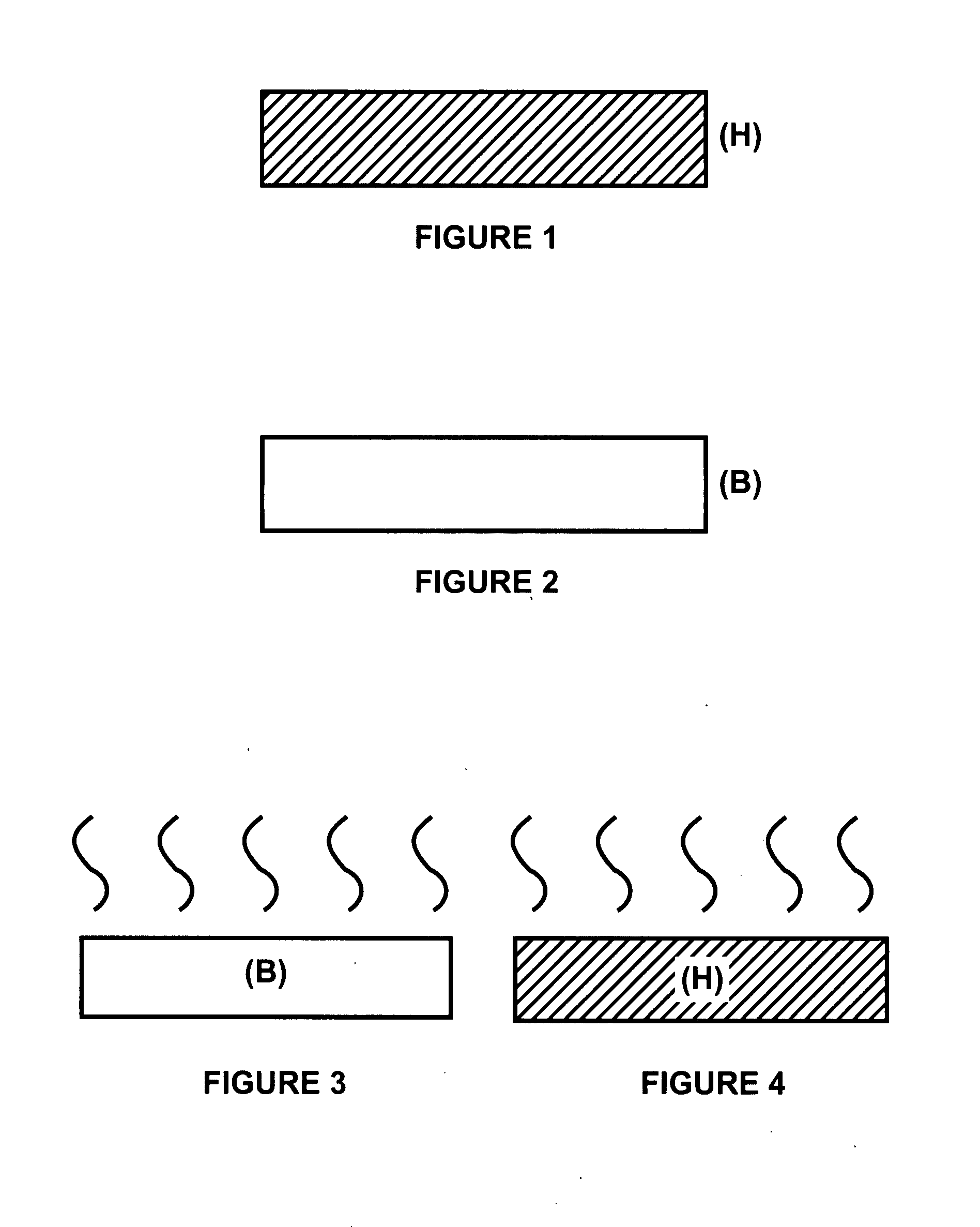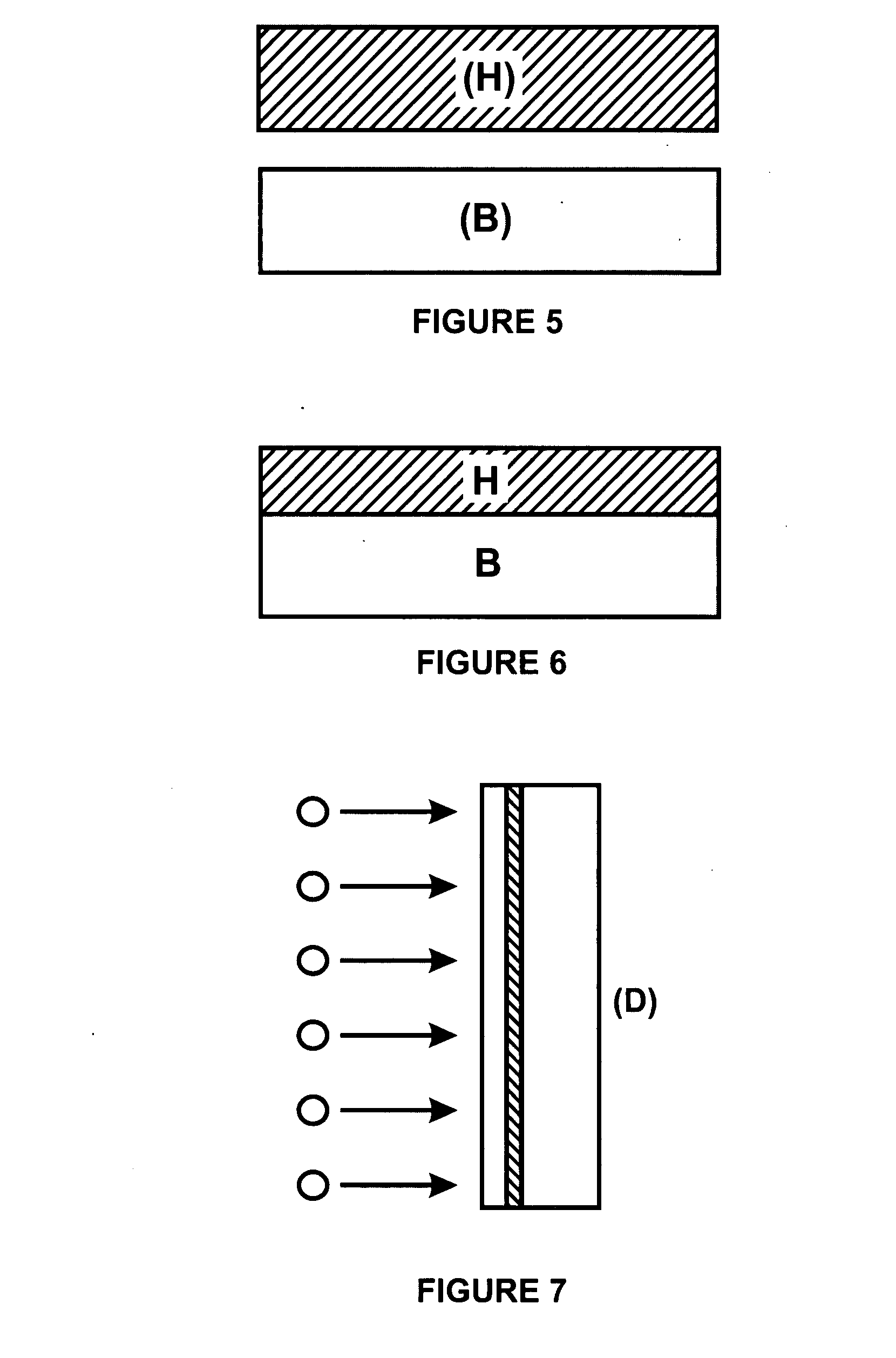Method and structure for fabricating solar cells using a layer transfer process
a layer transfer and solar cell technology, applied in semiconductor/solid-state device manufacturing, electrical equipment, semiconductor devices, etc., can solve the problems of not possessing the optimum properties of highly effective solar cells, many limitations of solar cells, and difficult manufacturing of materials, etc., to achieve high-quality photovoltaic power, efficient technique for large-scale manufacturing, and high-quality photovoltaic
- Summary
- Abstract
- Description
- Claims
- Application Information
AI Technical Summary
Benefits of technology
Problems solved by technology
Method used
Image
Examples
Embodiment Construction
[0037]According to embodiments of the present invention, techniques directed to the manufacture of photovoltaic materials are provided. More particularly, embodiments of the present invention provide a technique including a method and a structure for forming a solar cell structure using layer transfer techniques for photovoltaic applications. But it will be recognized that the invention has a wider range of applicability; it can also be applied to other types of applications such as for three-dimensional packaging of integrated semiconductor devices, photonic devices, piezoelectronic devices, flat panel displays, microelectromechanical systems (“MEMS”), nano-technology structures, sensors, actuators, integrated circuits, biological and biomedical devices, and the like.
[0038]A method of manufacturing a photovoltaic layer on a semiconductor substrate is briefly outlined below.
[0039]1. Provide a semiconductor substrate, which has a surface region, a cleave region and a first thickness ...
PUM
| Property | Measurement | Unit |
|---|---|---|
| Length | aaaaa | aaaaa |
| Electric potential / voltage | aaaaa | aaaaa |
| Electric potential / voltage | aaaaa | aaaaa |
Abstract
Description
Claims
Application Information
 Login to View More
Login to View More - R&D
- Intellectual Property
- Life Sciences
- Materials
- Tech Scout
- Unparalleled Data Quality
- Higher Quality Content
- 60% Fewer Hallucinations
Browse by: Latest US Patents, China's latest patents, Technical Efficacy Thesaurus, Application Domain, Technology Topic, Popular Technical Reports.
© 2025 PatSnap. All rights reserved.Legal|Privacy policy|Modern Slavery Act Transparency Statement|Sitemap|About US| Contact US: help@patsnap.com



